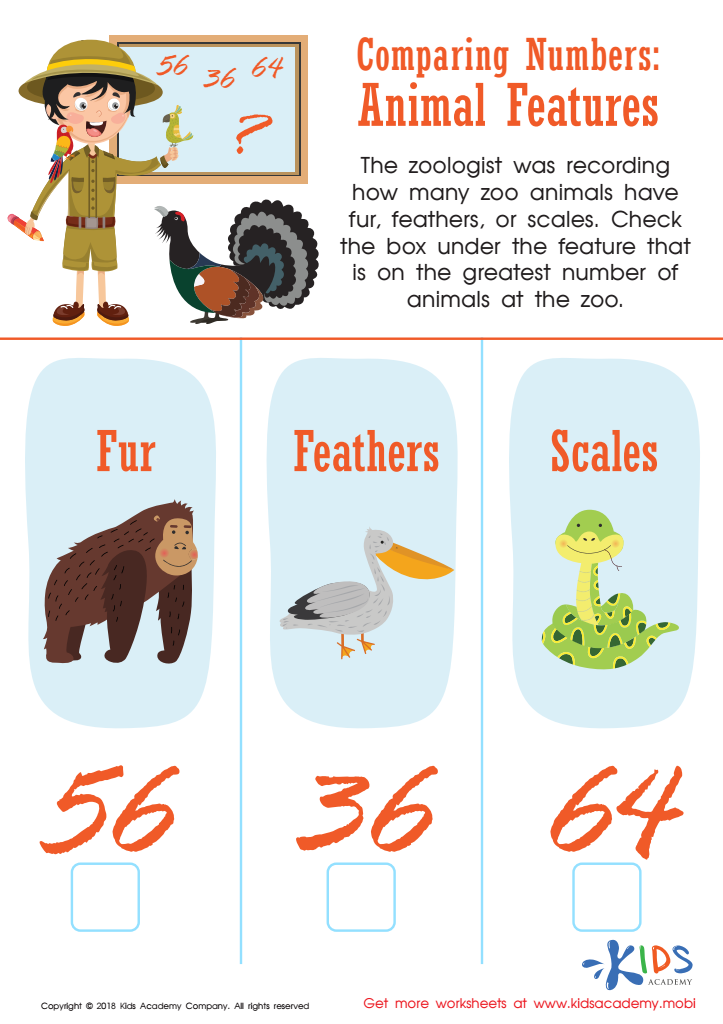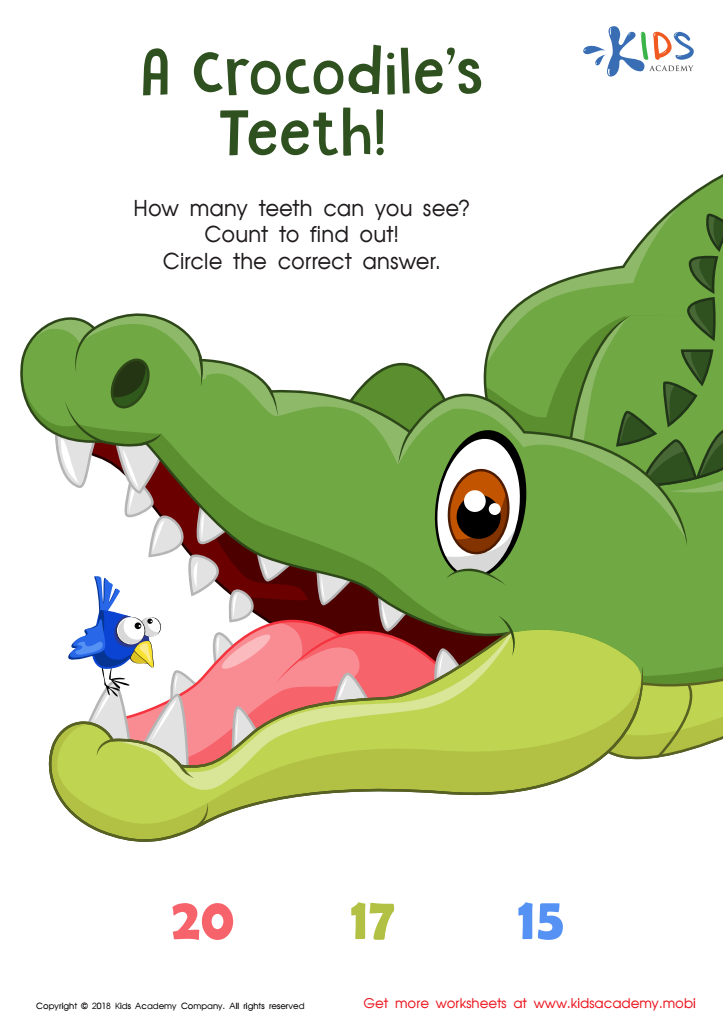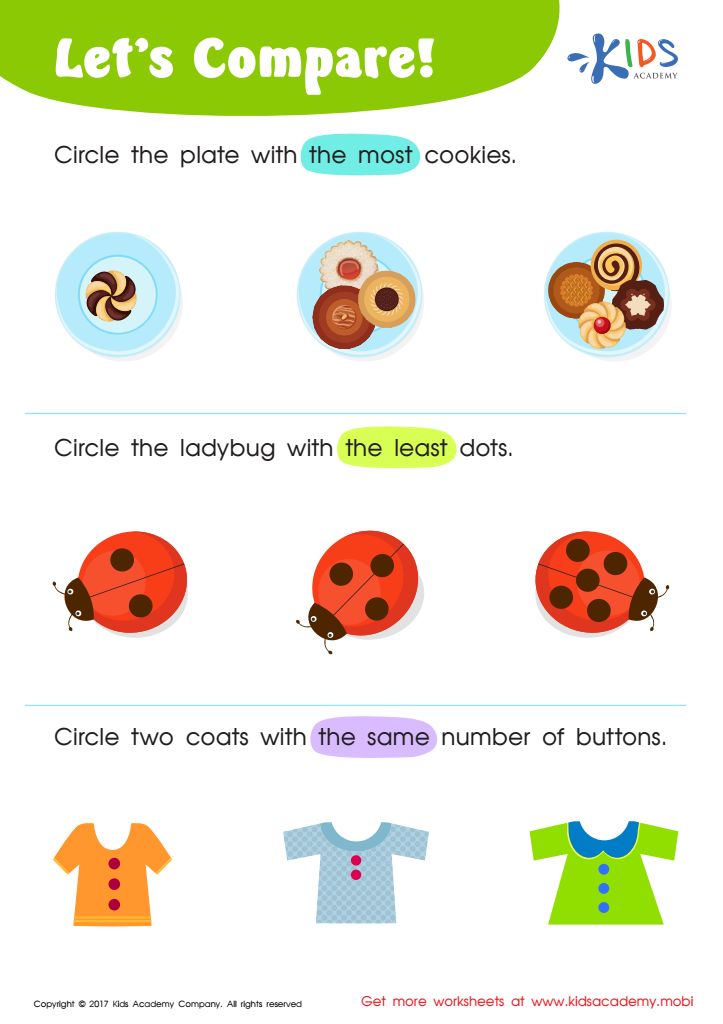Understanding comparisons Normal Numbers Worksheets for Ages 3-7
3 filtered results
-
From - To
Explore our "Understanding Comparisons Normal Numbers Worksheets" designed for children ages 3-7! These engaging worksheets provide a fun and interactive way to help young learners grasp the concept of comparing numbers. Through vibrant illustrations and simple exercises, kids will learn to identify which numbers are greater or lesser, enhancing their mathematical skills and foundational understanding. Ideal for both home and classroom use, these resources support early numeracy development and promote critical thinking. Start your child’s journey to confident counting and comparisons with our thoughtfully crafted materials that inspire a love for math while making learning enjoyable!


Animal Features Worksheet


A Crocodile's Teeth Worksheet


Matching: Classifying Toys by Size Worksheet
Understanding comparisons and normal numbers is crucial for children aged 3-7, as this foundational knowledge lays the groundwork for more advanced mathematical concepts. During these formative years, children are naturally curious about the world around them, making it an ideal time to introduce numerical concepts. When parents and teachers prioritize understanding comparisons—such as greater than, less than, and equal to—they help children develop critical thinking and problem-solving skills.
Moreover, mastering normal numbers helps children make sense of their environment. For instance, recognizing quantities enables them to participate in everyday activities, such as sharing snacks or counting toys. These basic skills foster confidence and independence, allowing children to engage with peers socially and educationally.
Additionally, understanding comparisons encourages cognitive flexibility, as children learn to evaluate and categorize information. This skill not only aids in mathematics but also enhances literacy, as it enables young learners to compare story elements or characters.
By investing time and resources into teaching these concepts, parents and educators empower children to be successful learners, preparing them for more complex mathematical tasks as they progress in their education. Ultimately, nurturing numerical understanding during these early years sets the stage for lifelong learning and interpersonal skills.

 Assign to My Students
Assign to My Students
















